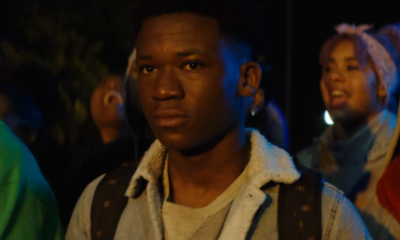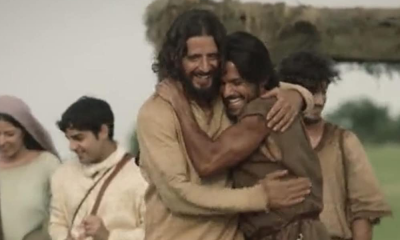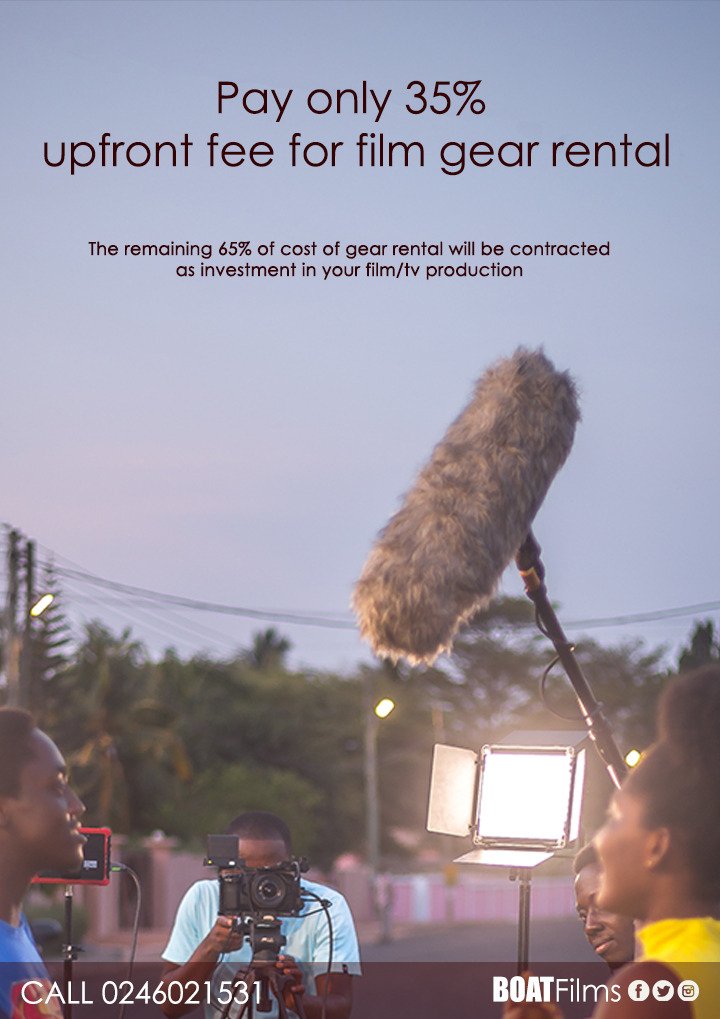Tv Show
Series Review: ‘To Kill A Monkey’ — Kemi Adetiba’s Gritty Cybercrime Thriller Explores Morality, Desperation, and Consequences
Published
7 months agoon

Cybercrime feels like a sub-genre of storytelling that Nollywood is yet to fully sink its teeth into. Granted, there have been a few films that have touched on the subject over the years, even in recent times. But it still feels like a vast terrain of untapped potential with a myriad of layered stories waiting to be told and explored. And this is where ‘To Kill A Monkey’, Netflix’s latest Nollywood original, steps in with quiet confidence and loaded intention.
This 8-episode limited series serves up a gripping tale set in the murky world of cybercrime, layered with themes of financial struggle, moral dilemmas, choices, consequences, and that never-ending, almost obsessive, fight for riches. But at its heart, it is a deeply human story about what happens when life corners you and the only escape comes at the cost of your values.
At the helm is Kemi Adetiba, who takes on the triple role of writer, director, and producer, a creative trifecta that she is so familiar with. You might not instantly recognise her name, but you definitely know her work. She directed the 2016 box office hit ‘The Wedding Party‘ and the wildly successful ‘King of Boys‘ and its spin-off mini-series. With this one, she makes it clear that her range goes well beyond just romance and political-themed thrillers. Here, she shows us the raw underbelly of ambition, desperation, and survival.
In ‘To Kill A Monkey’, we follow Efemini (played by William Benson), a man drowning under the weight of financial burdens and social expectations. When his path crosses with Oboz (played by Bucci Franklin), a former university cult member whose life he once saved, things take a sharp turn. Oboz is now the brazen leader of a prolific cybercrime syndicate, and seeking to repay the favour from their past, he offers Efemini a chance to escape his struggles. But this comes at a price for Efemini where he has to compromise on his values and dive headfirst into a dark world he’s completely unprepared for. The deeper he gets, the higher and quicker the stakes become and soon, he must face the consequences of his choices while risking everything that matters to him.
The first episode opens with an intense ritual scene, which is jarring enough to make you sit up and pay attention. From there, it carefully walks you into Efemini’s world where we see a man crushed under debt, burdened by family expectations to perform his mother’s final burial rites (a cost he cannot afford), and simultaneously preparing to welcome triplets with his wife, Nosa. As if that’s not enough pressure, he not only has to deal with working at a restaurant as a waiter under a manageress who would jump at any chance to get sexual favours from him, but he also has to escape the resentment and abuse from his mother-in-law, who sees him as nothing more than a failure.
Kemi Adetiba clearly committed to making this series as relatable as possible. She knew the story she wanted to tell and the specific characters needed to carry it. Her writing purposefully captures the reality of many men through Efemini, a tech-savvy individual who, despite his skills, is reduced to working odd jobs just to provide for his growing family. You feel the weight on his shoulders, and you also feel the silent strength and resilience of his wife, Nosa (played beautifully by Stella Damasus). Their reality mirrors that of many, which makes their decisions and motivations feel grounded. Poverty teaches you how far or low you’re willing to go, while wealth, on the other hand, reveals who you truly are.
The story then jumps four years forward. Efemini is now living in luxury, having fully partnered with Oboz. The life he once dreamed of is now his reality, but it comes with new threats, responsibilities and consequences. This part of the narrative allows us to explore not just the rewards of Efemini’s choices, but the price that comes with them. He might have escaped poverty, but now he must survive in waters with bigger threats, betrayals and more morally incongruent choices.
The writing cleverly also ties in the story of Inspector Mo Ogunlesi (played splendidly by Bimbo Akintola). A financial crimes agent who, after suffering personal loss, returns to work motivated to rise back up the ranks. As she struggles with her mental recovery, she is intrigued by this cybercrime syndicate and starts to probe deeper, hoping to unmask and expose them. Her character arc is carefully woven through the series, and it’s a masterstroke how her path intersects with Efemini’s. The writing finds a delicate balance in telling both stories side by side, almost building them independently until it dramatically reveals the connection.
If you pay close enough attention, you can’t help but spot the subtle nods to mob films like Scarface, Goodfellas, and The Godfather, and their familiar tropes, woven into the narrative of this series.
Overall, the quality of acting in the entire series is great. Every actor holds their own and delivers, making the characters feel lived-in and authentic. But Bucci Franklin, as Oboz, is in a league of his own. I first took notice of him in the 2021 film ‘The Razz Guy’, and I’ve never doubted his ability to deliver. But here, he completely shines. His portrayal of Oboz is magnetic, even as an antihero. In every scene, he commands attention. In every scene, he commands attention. When Oboz spirals, the vitriol he throws cuts so deep, you, the viewer, feel it too.
My only disappointment is that the series doesn’t offer more insight into his motivations. He’s such an intriguing character that you’re left wanting to know why he is the way he is, which fuels his decisions.
The dialogue in this series is also worth highlighting. It’s sharp, believable, and often memorable. You know the writing is solid when you find quotables in nearly every episode. These lines sit with you and resonate with you long after those scenes have passed. I can already see social media picking up some of these moments and turning them into memes or viral soundbites.
Visually, the series is a treat. Even the untrained eye will notice that ‘To Kill A Monkey’ is crisp and thoughtfully shot. The cinematography is deliberate, carefully choosing when to pull the audience into a moment and when to take a step back and give us the broader picture. The haze and fog effects, while sometimes overused, add a soft, almost dreamlike texture to the visuals. Still, a few scenes could have done without them to allow the rawness of the moment to shine through.
The sound design and scoring also deserve major praise. Every sonic choice adds to the tension and drama. You can hear footsteps and almost feel how imposing or brooding a character’s presence is in each scene. The original score by Oscar Heman-Ackah complements the storytelling perfectly, enhancing scenes without overpowering them.
That said, the biggest letdown of this series comes in the final two episodes. I have argued several times that Nollywood writers often know how to start a story, get you hooked and invested in the narrative and its characters, but often struggle with how to end the story. To Kill a Monkey adds to my arsenal for this argument. After a promising and intense build-up, the climax feels rushed and too convenient. It’s as if the creators ran out of time or simply opted for an easy way out, forcing conflicts to be resolved more easily than you would expect. While there are a few standout moments toward the end, they’re not enough to fully redeem what could have been a more impactful conclusion.
For everything it achieves, I’d score ‘To Kill A Monkey‘ a solid 7.5 out of 10.
What excites me most, however, is what this series represents. The floodgates for cybercrime-focused Nollywood stories are now open. And I’m optimistic. Not necessarily to glamorise these crimes or the lives of the perpetrators, but to explore the full range of stories, the why, the how, and the cost and consequence thereafter. Just like international cinema over the years has dissected drug culture or organised crime, it’s time we do the same here, authentically and unflinchingly.
Second on my list of addictions is Movies.. the only thing I could possibly love more is my Dearest Waakye lol. Nothing else does a better job of reminding me that ANYTHING is possible with the right amount of effort. I have great eye for details and flaws in scripts. Shallow scripts bore me. I am an avid reader. Your everyday Mr Nice guy. Always the last to speak in a room full of smart people. Half Human, half Martian but full MOVIE FREAK.

You may like
-


Ghana’s Mawuko Kuadzi Becomes the First West African to Join the Casting Society of America (CSA)
-


Feature Article: 3 ways you can get your film on NETFLIX.
-


Movie Review: Abraham Attah’s Class Act In ‘TAZMANIAN DEVIL’, Solomon Onita Jr’s Feature Debut.
-


Movie Review: The Lost Okoroshi – Why You Need To Watch This – #theReviews
-


“The Chosen” Officially Greenlights Production of Season Two
-


Movie Review: Your Excellency – #theReviews


















